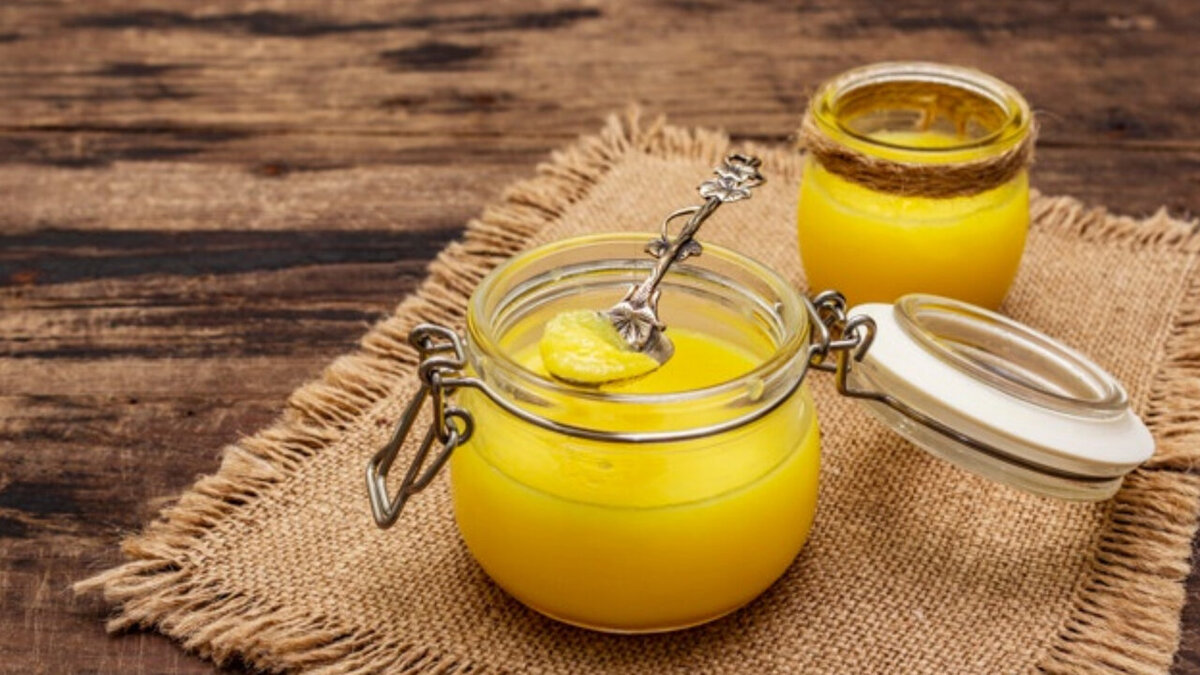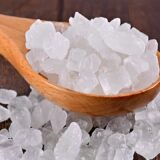Benefits Of Ghee: A Diet From Ancient Tradition To Modern Superfood
Ghee, a form of clarified butter, has been a staple in traditional Indian cuisine for centuries. It is known for its rich, nutty flavor and numerous health benefits. In recent years, ghee has gained popularity worldwide as people recognize its potential to enhance overall well-being. This article explores the various benefits of ghee and provides compelling reasons to include it in your daily diet.
Ghee’s unique nutritional composition makes it a versatile and nutrient-rich ingredient that can enhance the flavor and nutritional value of various dishes. Adding ghee mindfully to your diet can provide you with essential nutrients while adding a delightful taste to your culinary creations.
The Origins of Ghee
Ghee has its origins in ancient India and has been used for centuries in Ayurvedic medicine and cooking. It is prepared by simmering butter, which removes the water content and milk solids, resulting in a pure golden liquid known as ghee.
Ghee has been a part of Indian culture and cuisine for thousands of years. Its roots can be traced back to ancient times when it was not only valued for its culinary uses but also revered for its medicinal properties.
In traditional Indian households, ghee was considered a sacred ingredient and was often offered as a tribute to deities during religious ceremonies.
The process of making ghee was passed down through generations, with families having their unique techniques and rituals. Today, ghee continues to hold a special place in Indian households, serving as a symbol of tradition, nourishment, and cultural heritage.
Nutritional Profile of Ghee
Ghee has a rich and impressive nutritional profile, making it a valuable addition to a healthy diet. While it is primarily composed of fats, not all fats are created equal, and ghee stands out for its unique composition.
1. Healthy Fats: Ghee is primarily composed of saturated fats, which have been a topic of discussion in the health community. However, recent research has shown that not all saturated fats are detrimental to health. Ghee contains healthy fats that can provide a range of benefits.
2. Medium-Chain Triglycerides (MCTs): Ghee contains medium-chain triglycerides, a type of fat that is easily digested and utilized by the body for energy. MCTs have been associated with various health benefits, including improved cognitive function, increased satiety, and enhanced metabolism.
3. Essential Fatty Acids: Ghee contains essential fatty acids, such as omega-3 and omega-6 fatty acids, which play vital roles in the body. These fatty acids are involved in brain function, hormone production, and maintaining healthy skin and hair.
4. Vitamins: Ghee is a rich source of fat-soluble vitamins, including vitamins A, D, E, and K. These vitamins are crucial for various bodily functions. Vitamin A supports vision health, immune function, and cell growth.
Vitamin D is essential for bone health, immune system regulation, and overall well-being. Vitamin E is a powerful antioxidant that helps protect cells from damage, while vitamin K plays a key role in blood clotting and bone health.
5. Antioxidants: Ghee contains antioxidants that help protect the body against oxidative stress and inflammation. These antioxidants neutralize harmful free radicals, reducing the risk of chronic diseases and promoting overall health.
It’s important to note that while ghee offers nutritional benefits, it should be consumed in moderation due to its high-calorie content. Incorporating ghee as part of a balanced diet can provide essential nutrients and contribute to overall well-being.
6. Conjugated Linoleic Acid (CLA): Ghee contains conjugated linoleic acid, a type of fatty acid that has been studied for its potential health benefits. CLA has been associated with a range of positive effects, including reducing body fat, improving insulin sensitivity, and supporting heart health.
7. Butyric Acid: Ghee is a natural source of butyric acid, a short-chain fatty acid that plays a vital role in gut health. Butyric acid acts as a source of energy for the cells lining the digestive tract and has been shown to have anti-inflammatory properties.
It supports a healthy gut environment, aids in nutrient absorption, and promotes overall digestive well-being.
8. Cholesterol Content: Ghee is often considered to have a high cholesterol content due to its animal fat origin. However, recent research suggests that the effect of dietary cholesterol on blood cholesterol levels may be more complex than previously believed.
The overall impact of ghee on cholesterol levels may vary among individuals and should be considered in the context of an individual’s overall dietary pattern and health status.
9. Lactose and Casein-Free: Ghee is made by separating the milk solids from butter, resulting in a lactose and casein-free product.
This makes it a suitable option for individuals with lactose intolerance or dairy sensitivities, as the potentially problematic components are removed during the clarification process.
10. Absence of Trans Fats: Ghee is free from transfats, which are known to be harmful to health. Trans fats have been linked to an increased risk of heart disease and other health conditions.
Ghee’s natural preparation process does not involve hydrogenation, which is the main source of trans fats in many processed foods.
Benefits Of Ghee
Ghee offers a wide range of benefits, making it a valuable addition to your daily diet. From promoting digestive health to supporting heart health and boosting immunity, ghee is a versatile ingredient that can enhance overall well-being.
With its rich nutrient profile and culinary advantages, it is no wonder that ghee has been cherished for centuries. Consider incorporating ghee into your meals and experience the numerous benefits it has to offer, below are some of them.
1. Promotes Digestive Health
Ghee contains butyric acid, which acts as a fuel source for the cells in the digestive tract. It helps in maintaining a healthy gut lining, reducing inflammation, and promoting proper digestion and nutrient absorption.
Regular consumption of ghee can alleviate digestive disorders such as constipation, bloating, and acid reflux.
2. Boosts Immunity
Ghee is rich in antioxidants and fat-soluble vitamins that strengthen the immune system. The antioxidants help in neutralizing harmful free radicals, reduce oxidative stress, and protect the body against various diseases.
Additionally, the vitamins present in ghee, such as vitamins A and E, play a crucial role in maintaining a robust immune response.
3. Supports Weight Loss
Contrary to popular belief, ghee can aid in weight loss when consumed in moderation. The medium-chain triglycerides (MCTs) present in ghee are easily digested and utilized by the body as an energy source.
They help in boosting metabolism, promote fat burning, and reduce cravings, thus supporting weight loss efforts.
4. Enhances Brain Function
The healthy fats and nutrients in ghee contribute to better brain health and function. The omega-3 fatty acids and vitamins in ghee support cognitive function, memory, and focus. Regular consumption of ghee can help in reducing the risk of neurodegenerative disorders and enhance overall brain performance.
5. Supports Heart Health
Ghee contains healthy fats that are beneficial for heart health. The presence of omega-3 fatty acids helps in reducing inflammation and maintaining healthy cholesterol levels. Ghee also contains conjugated linoleic acid (CLA), which has
been associated with a lower risk of heart disease. Including ghee in a balanced diet can contribute to a healthy heart.
6. Provides Essential Vitamins
Ghee is a rich source of essential vitamins, including vitamins A, D, E, and K. These vitamins play vital roles in various bodily functions, such as maintaining healthy vision, bone health, skin health, and blood clotting. Consuming ghee can ensure an adequate intake of these essential vitamins.
7. Aids in Nutrient Absorption
The presence of fat-soluble vitamins in ghee helps in the absorption of other nutrients from the food we consume. These vitamins act as carriers and enhance the bioavailability of fat-soluble vitamins like vitamins A, D, E, and K, as well as other important nutrients, such as calcium and iron.
8. Promotes Healthy Skin and Hair
Ghee is not only beneficial when consumed but also when applied topically. Its moisturizing properties make it an excellent natural remedy for dry skin and hair.
Regularly massaging ghee onto the skin can improve hydration, reduce dryness, and promote a healthy glow. Similarly, applying ghee to the hair can nourish the scalp, strengthen the hair follicles, and add shine to the hair.
9. Reduces Inflammation
Ghee contains butyric acid, which possesses anti-inflammatory properties. Regular consumption of ghee can help reduce inflammation in the body, alleviating symptoms associated with inflammatory conditions such as arthritis, asthma, and certain skin disorders.
10. Suitable for Lactose-Intolerant Individuals
Ghee is made by removing the milk solids from butter, making it virtually lactose-free. As a result, individuals who are lactose intolerant can often consume ghee without experiencing adverse digestive symptoms.
However, it is essential to consult with a healthcare professional before introducing ghee into your diet if you have lactose intolerance or any other food allergies.
Cooking with Ghee: Culinary Advantages
Ghee has a high smoke point, which makes it ideal for cooking at higher temperatures. Unlike other cooking oils, ghee does not break down or release harmful compounds when heated. It imparts a rich, buttery flavor to dishes, enhancing the taste and aroma of various cuisines.
How to Incorporate Ghee Into Your Diet?
Incorporating ghee into your daily diet is simple. You can use it as a cooking oil, spread it on toast or bread, add it to coffee or tea, or drizzle it over steamed vegetables. Be mindful of portion sizes, as ghee is high in calories. Moderation is key when enjoying the benefits of ghee.
Note
When incorporating ghee into your diet, it’s essential to be mindful of portion sizes due to its high-calorie content. Moderation is key, and it is recommended to consult with a healthcare professional or registered dietitian for personalized advice and guidance on incorporating ghee into a balanced diet.
Frequently Asked Questions (FAQs) On Ghee
Q1. Is ghee suitable for individuals with lactose intolerance?
Yes, ghee is typically safe for individuals with lactose intolerance as the milk solids have been removed during the clarification process. However, it is recommended to consult with a healthcare professional before incorporating ghee into your diet.
Q2. Can ghee aid in weight loss?
Yes, ghee can support weight loss efforts when consumed in moderation. The medium-chain triglycerides (MCTs) present in ghee promote fat-burning and boost metabolism, helping with weight management.
Q3. How should ghee be stored?
Ghee should be stored in an airtight container in a cool, dark place, away from direct sunlight. It does not require refrigeration and has a long shelf life.
Q4. Can ghee be used for cooking at high temperatures?
Yes, ghee has a high smoke point, making it suitable for cooking at high temperatures. It does not break down or release harmful compounds when heated.
Q5. Is ghee vegan-friendly?
No, ghee is derived from butter, which is an animal product. Therefore, it is not suitable for a vegan diet.

























